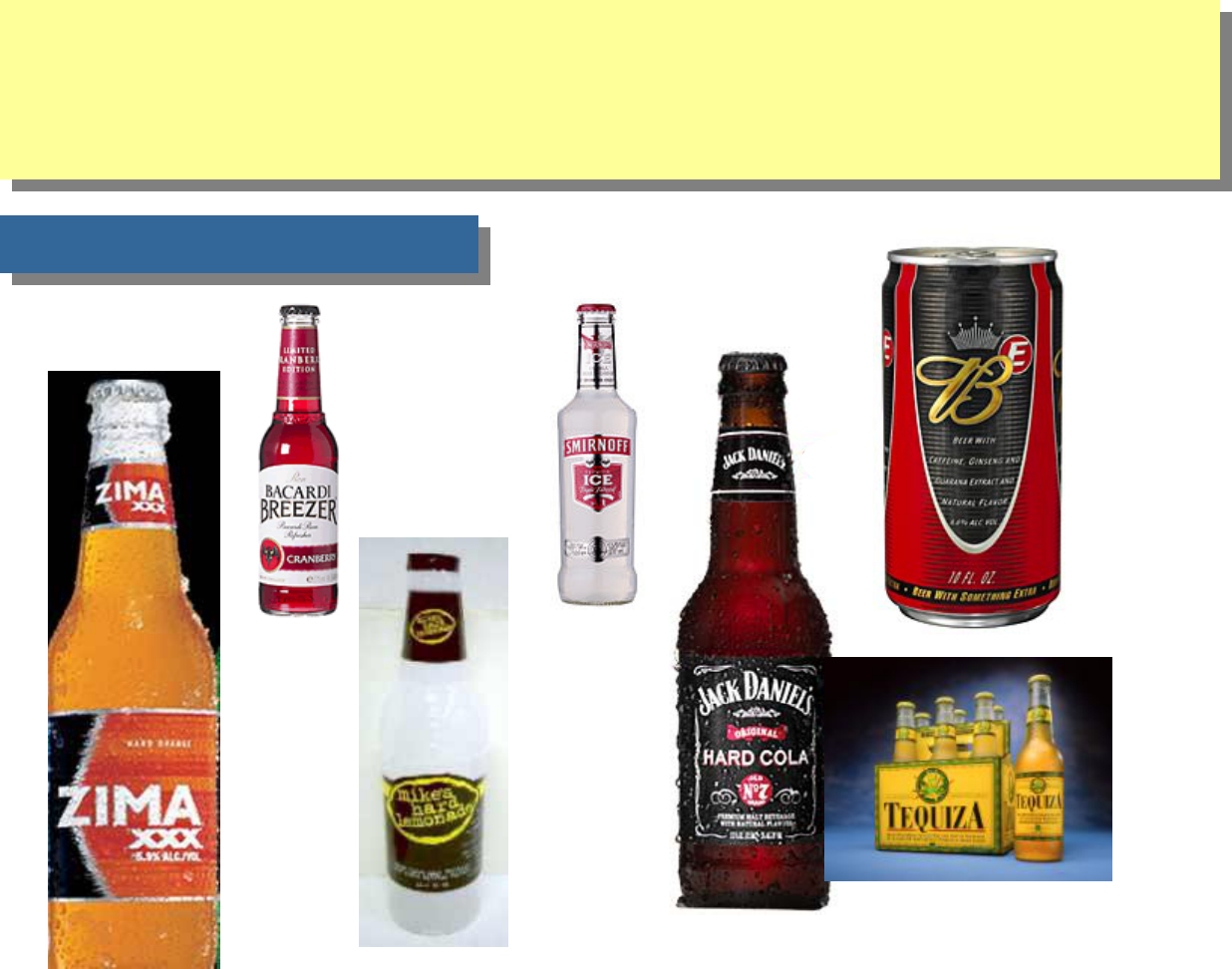
P
P
REVENTING
REVENTING
U
U
NDERAGE
NDERAGE
A
A
LCOHOL
LCOHOL
U
U
SE
SE
:
:
A
A
N
N
ATIONAL
ATIONAL
M
M
EETING
EETING
OF
OF
THE
THE
S
S
TATES
TATES
October 31, 2005
October 31, 2005
William H. Foster
Assistant Administrator, HQ Operations
Alcohol and Tobacco Tax and Trade Bureau
1310 G St., NW
Washington, DC 20220
Office: (202) 927- 8210

Introduction
Introduction
Introduction
Minimum Drinking Ages
Historical Perspective
Twenty-first Amendment & State Authority
TTB Authority & Limits of the Federal Role
Labeling of Alcohol Beverage Products
Statutes and Regulations
Constitutional Concerns
Court Cases and Rulemaking
Questions

World Legal Drinking Ages
World Legal Drinking Ages
World Legal Drinking Ages
No Minimum Age 14 Age 16 Age 18
Age
19
Age 20 Age 21
Armenia
Azerbaijan
China
Nigeria
Portugal
Thailand
Viet Nam
Switzerland* Antigua
Austria
Belgium
France
Germany*
Italy
Netherlands*
Norway*
Poland
Spain
Turkey*
Australia
Barbados,
Bermuda
Chile
Czech
Republic
Hong Kong
Indonesia
Jamaica
Israel
Mexico
Philippines
Russia
South Africa
UK (age 16 in
restaurants)
Canada (age
19 in some
provinces)
Denmark
Hungary
Ireland
Puerto Rico
South
Korea
Japan
Iceland
New Zealand*
United States
*With some exceptions
Source:
http://www2.potsdam.edu
/hansondj/LegalDrinking
Age.html
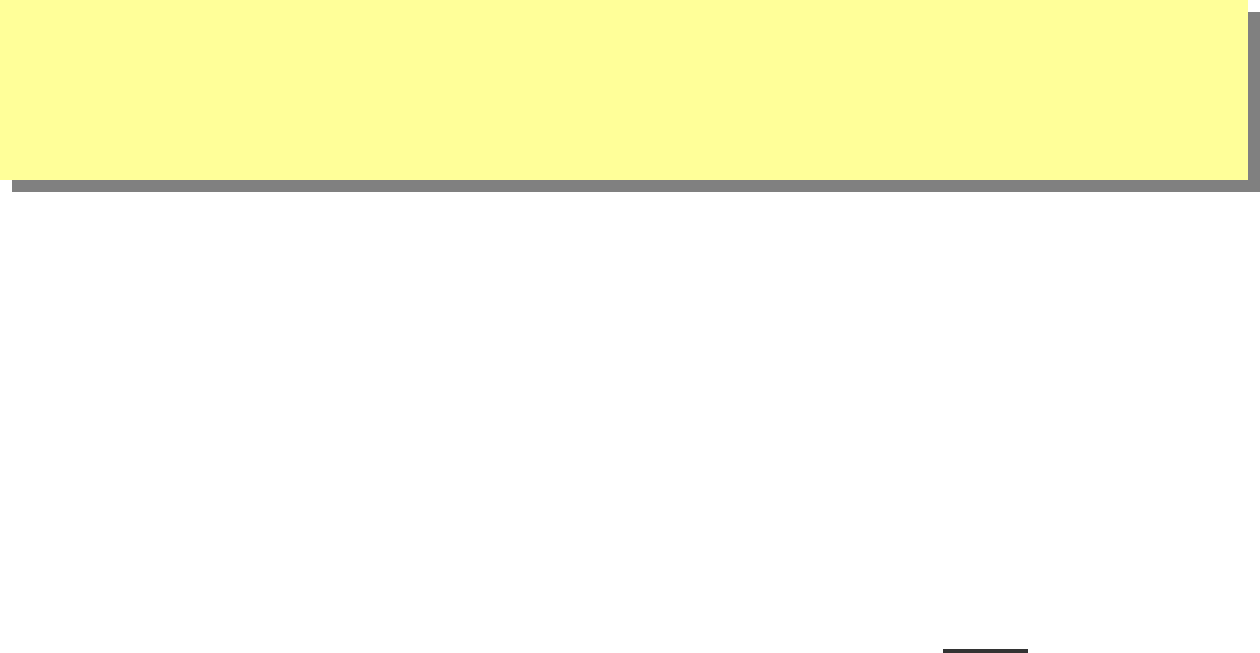
National Minimum
Drinking Age
National Minimum
National Minimum
Drinking Age
Drinking Age
On July 17, 1984, President Reagan signed
legislation that placed certain conditions on the
receipt of Federal highway funds by States. The
law provides that 10% of certain funds would be
withheld unless the State made it unlawful for
persons under the age of 21 to purchase or
publicly possess alcoholic beverages. See
23
U.S.C. 158.
All 50 States have now enacted such legislation.

Pre-Prohibition Era
Pre
Pre
-
-
Prohibition Era
Prohibition Era
Late 1800’s and early 1900’s:
Corruption among whisky producers.
Alcohol abuse became a large social
concern.
“Temperance” movement grew.
Large segment of population believed
alcohol should be banned.

Prohibition
Prohibition
Prohibition
1919 — Eighteenth Amendment to the
U.S. Constitution was passed.
Nationwide ban on the “manufacture,
sale or transportation of intoxicating
liquors for beverage purposes.”

Prohibition Era Problems
Prohibition Era Problems
Prohibition Era Problems
Ban on alcohol did not stop alcohol
consumption.
Alcohol production and distribution went
“underground” and were taken over by
criminal organizations.
Racketeers made huge profits from illegal
alcohol.
Increased crime and corruption associated
with Prohibition.

Repeal of Prohibition
Repeal of Prohibition
Repeal of Prohibition
21st Amendment — Repeal of the Eighteenth Amendment:
Section 1. The eighteenth article of amendment to the Constitution of the United
States is hereby repealed.
Section 2. The transportation or importation into any State, Territory, or possession of
the United States for delivery or use therein of intoxicating liquors, in violation of the
laws thereof, is hereby prohibited.
The 21st Amendment grants the States virtually complete control over whether to
permit importation or sale of liquor and how to structure the liquor distribution system.
The Webb-Kenyon Act provides that the shipment or transportation of any beverage
alcohol product from one State into any other State in violation of any law of such State
is prohibited. This was amended by the Twenty-first Amendment Enforcement Act,
which authorizes State Attorneys General to enjoin violations of the Act by out-of-State
shippers.
Basic permits under the FAA Act are conditioned upon compliance with the Twenty-first
Amendment and other Federal laws relating to its enforcement, including the Webb-
Kenyon Act. In the appropriate circumstances, violations of the Webb-Kenyon Act
could result in permit action by TTB. It should be noted that retailers do not have basic
permits under the FAA Act.

Post-Prohibition Federal
Government Controls
Post
Post
-
-
Prohibition Federal
Prohibition Federal
Government Controls
Government Controls
Until enactment of “all-in-bond,” there was on-
premises supervision of distilled spirits plants by
government officers.
Stamps were used to evidence tax payment.
Permit system for importers, wholesalers and
most producers.
Controls over labeling and advertising
of alcohol.
Controls over trade practices to ensure retailer
independence.

Federal Regulation and
Control of the Industry Today
Federal Regulation and
Federal Regulation and
Control of the Industry Today
Control of the Industry Today
Permit System — Importers, wholesalers and
most producers must have basic permits.
Brewers must qualify under the Internal Revenue
Code.
Records — Comprehensive system of records
(production, storage, processing, and removal of
alcohol).
Reports — Regular reports submitted to the
National Revenue Center.
Audits and Inspections — Periodic audits and
inspections by field personnel.

“Three-tier” System
“
“
Three
Three
-
-
tier
tier
”
”
System
System
A complex set of Federal and State
laws and regulations preserve a “three-
tier” system for alcohol beverages:
– Manufacturer
–Wholesaler
– Retailer
Federal controls are more rigorous for
producers.

State and Local Controls
State and Local Controls
State and Local Controls
States have two systems of control:
– Government control of distribution—18
“control” States and Montgomery County,
Maryland.
– Government license system—32 “license”
States.
States have authority to determine
distribution requirements.

• In 2005, the Supreme Court held that the
Twenty-first Amendment did not allow
States to discriminate against interstate
commerce in violation of the Commerce
Clause. See Granholm v. Heald, 125 S. Ct.
1885 (2005).
Direct Shipments – Limits on States’
Authority Under Twenty-first Amendment
Direct Shipments
Direct Shipments
–
–
Limits on States
Limits on States
’
’
Authority Under Twenty
Authority Under Twenty
-
-
first Amendment
first Amendment

The Supreme Court found that the States’
claims that direct shipment of wine would
increase the risk of underage drinking –
– were not supported by concrete evidence;
and
– would not justify regulations limiting only out-
of-state direct shipments.
Do Direct Shipments Facilitate
Underage Consumption?
Do Direct Shipments Facilitate
Do Direct Shipments Facilitate
Underage Consumption?
Underage Consumption?
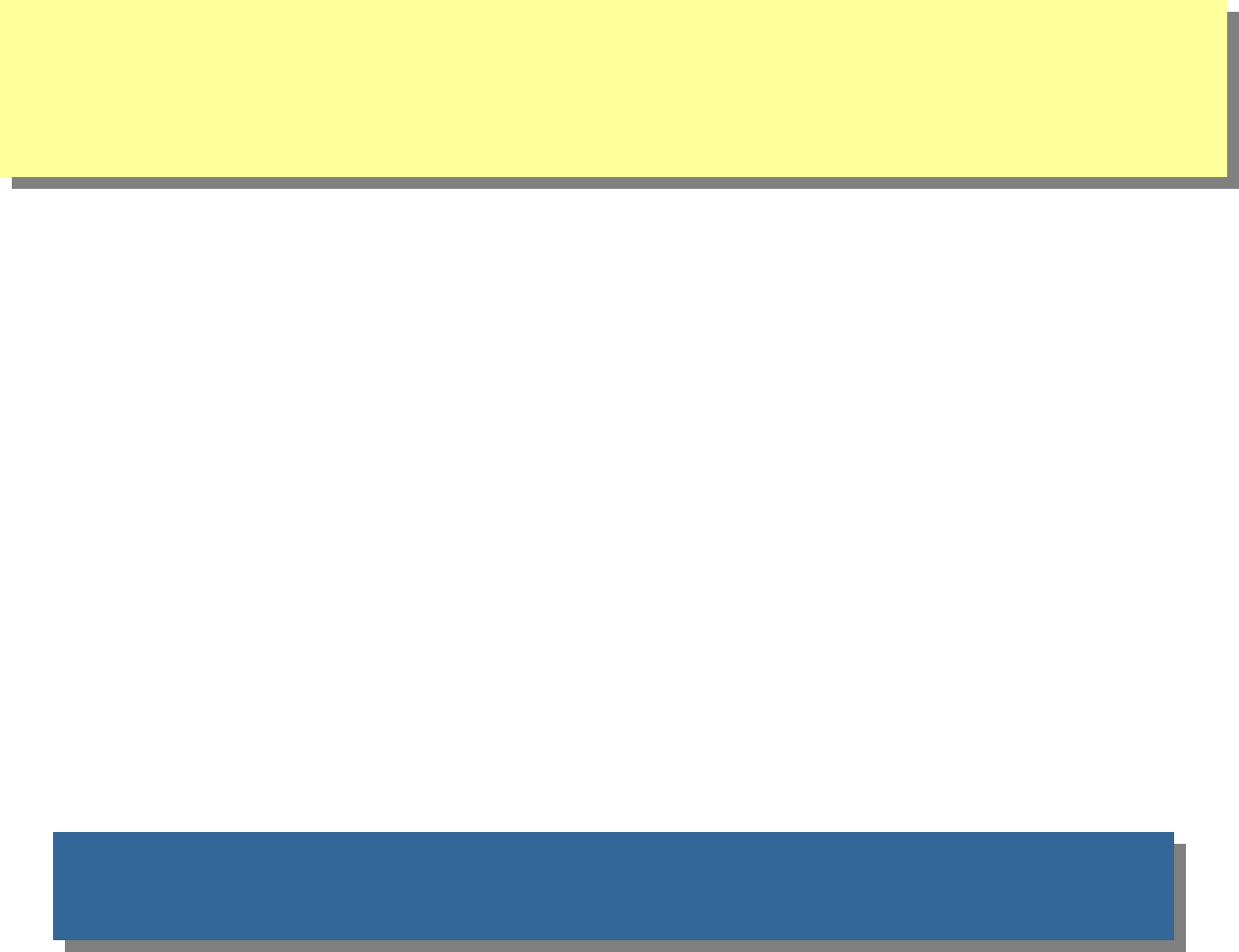
TTB’s Authority to Regulate Labeling of
Alcohol Beverage Products
TTB
TTB
’
’
s Authority to Regulate Labeling of
s Authority to Regulate Labeling of
Alcohol Beverage Products
Alcohol Beverage Products
TTB’s statutory mandate, under the Federal Alcohol Administration
(FAA) Act, is to implement regulations governing the labeling and
advertising of alcoholic beverage products in order to:
1. Prevent consumer deception,
2. Provide the consumer with adequate information as to the
identity and quality of the product, and
3. Prevent statements or representations which are false or
mislead the consumer. See 27 U.S.C. 205(e) and 205(f).
TTB issues regulations governing the labeling and advertising of wine,
distilled spirits, and malt beverages in accordance with 27 CFR parts 4,
5, and 7 respectively.
Provide consumers with adequate information as
to the identity and quality of products.
Provide consumers with adequate information as
to the identity and quality of products.

Constitutional Limits: First
Amendment
Constitutional Limits: First
Constitutional Limits: First
Amendment
Amendment
3. Does the regulation directly advance the substantial governmental
interest?
2. Does the regulation serve a substantial governmental interest?
In 1980, in a case known as Central Hudson Gas and Electric, the
Supreme Court established a four-part test
for determining whether
limitations on commercial speech are constitutional.
4. Is the regulation more restrictive than necessary to serve the
governmental interest?
1. Is the speech protected by the First Amendment? If it is false or
misleading, or concerns illegal activity, it is not protected.

• TTB does not have explicit statutory
authority to evaluate labels and
advertisements based on their appeal to
youth.
• Nonetheless, the issue of underage
consumption sometimes plays a role in
labeling cases, as illustrated by the
following examples.
Statutory Limits
of Federal Authority
Statutory Limits
Statutory Limits
of Federal Authority
of Federal Authority
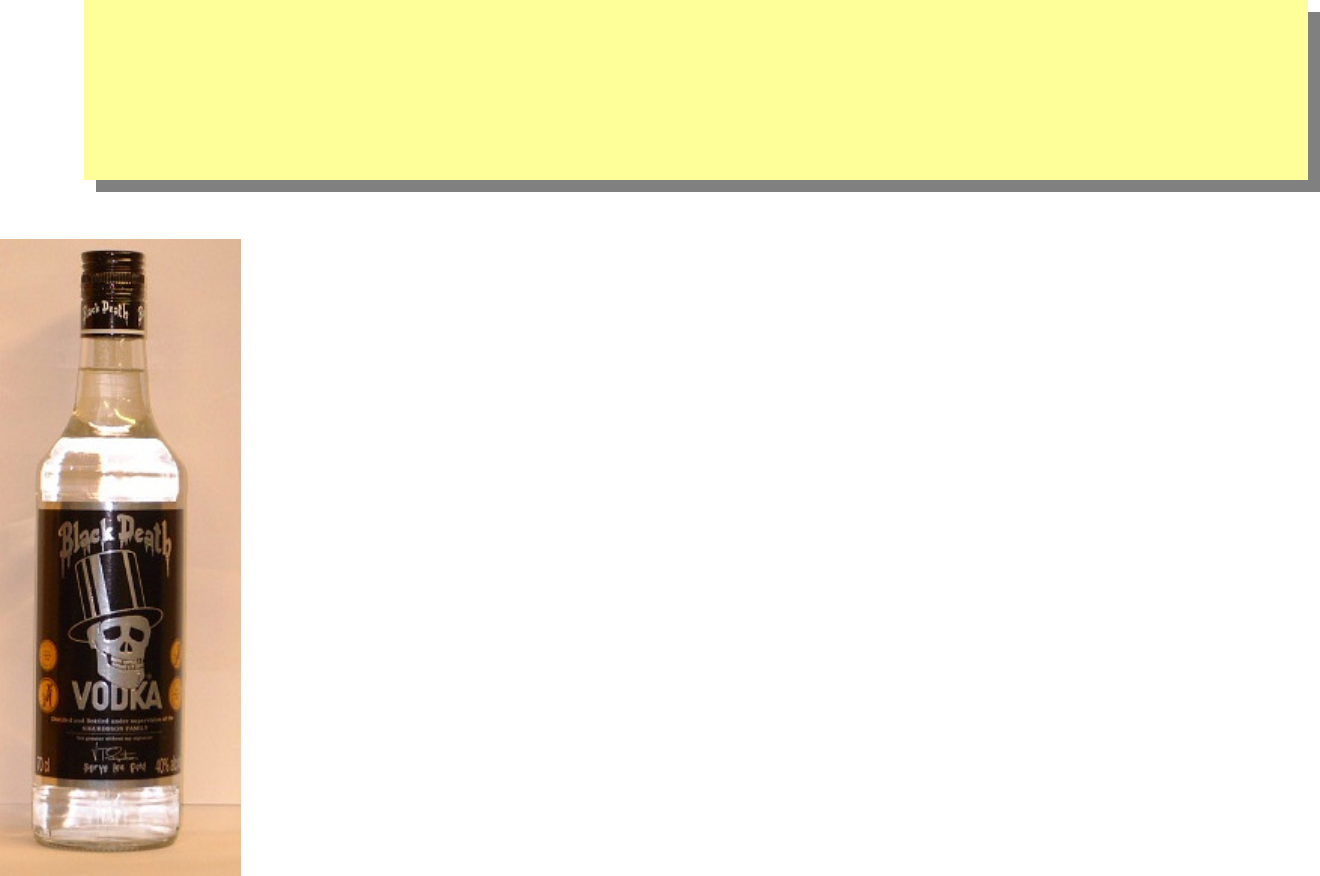
“Black Death Vodka”
U.S. District Court for the Northern District of California
“
“
Black Death Vodka
Black Death Vodka
”
”
U.S. District Court for the Northern District of California
U.S. District Court for the Northern District of California
The U.S. Surgeon General, Antonia Novello, made statements
on the “Today Show” in which she criticized the importer’s
decision to market the vodka to young people.
In this promotional campaign, the importer apparently targeted
young alcohol drinkers by using such techniques as selling
bottles in miniature coffins and associating the vodka with
slogans such as “Drink in Peace.”
In addition, Cabo hired Saul Hudson, (“Slash” from the rock
band “Guns ‘n Roses”), to promote “Black Death Vodka.”
ATF revoked the label, among other issues, on the grounds that
it undermined the health warning statement. ATF lost the court
case. The court found that the label was not misleading, and
stressed the limited nature of ATF’s authority.
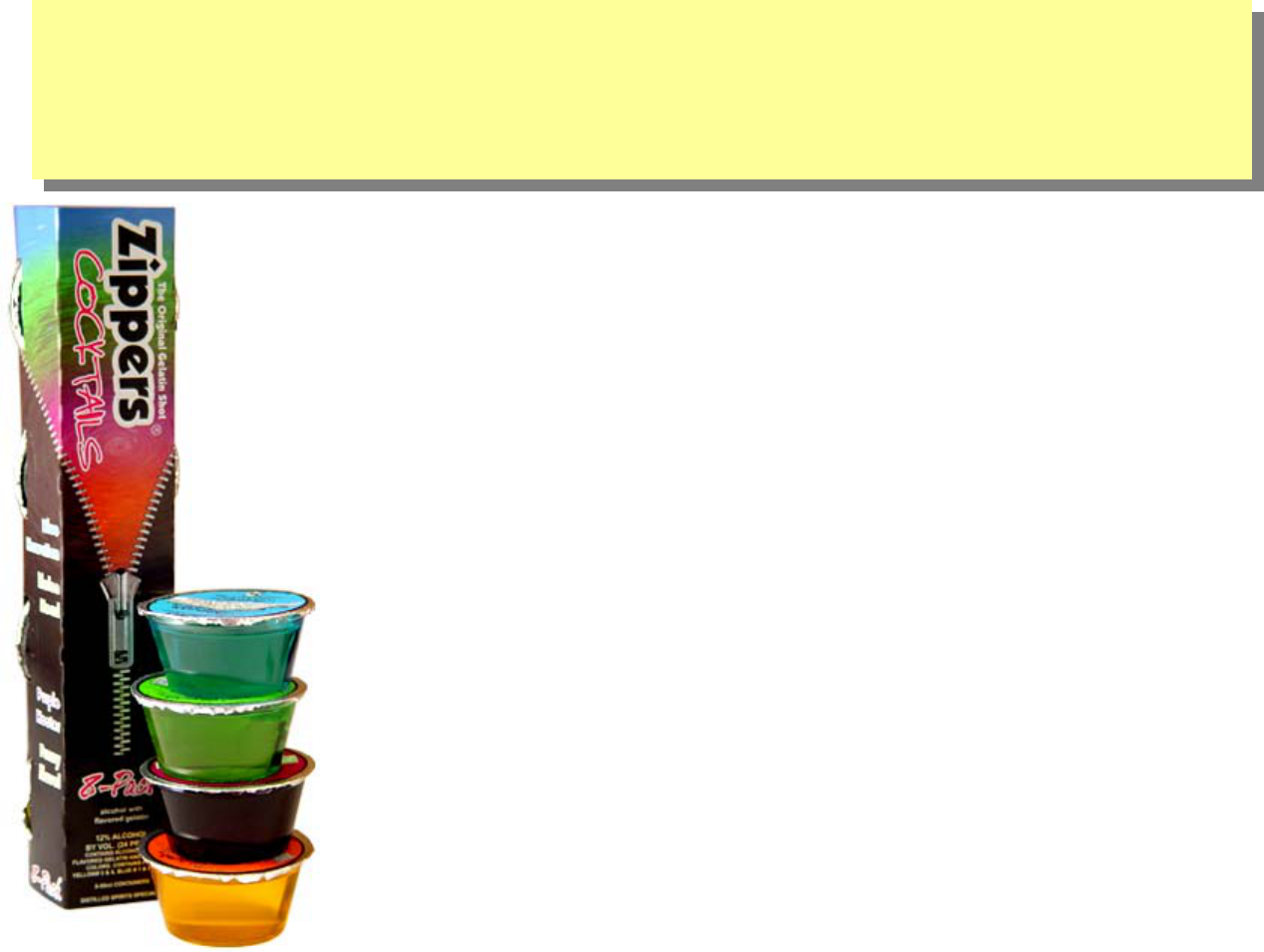
Standard of Fill:
Aggregate Packaging Concerns
Standard of Fill:
Standard of Fill:
Aggregate Packaging Concerns
Aggregate Packaging Concerns
Notice No. 872, an NPRM that ATF issued in
1999, sought comments on aggregate
standards of fill and nontraditional containers
of alcohol beverages.
We expressed concern that “aggregate
packaging” might confuse consumers,
undermine State and local controls, and
encourage consumption by underage
individuals.
No final TTB Ruling to date.
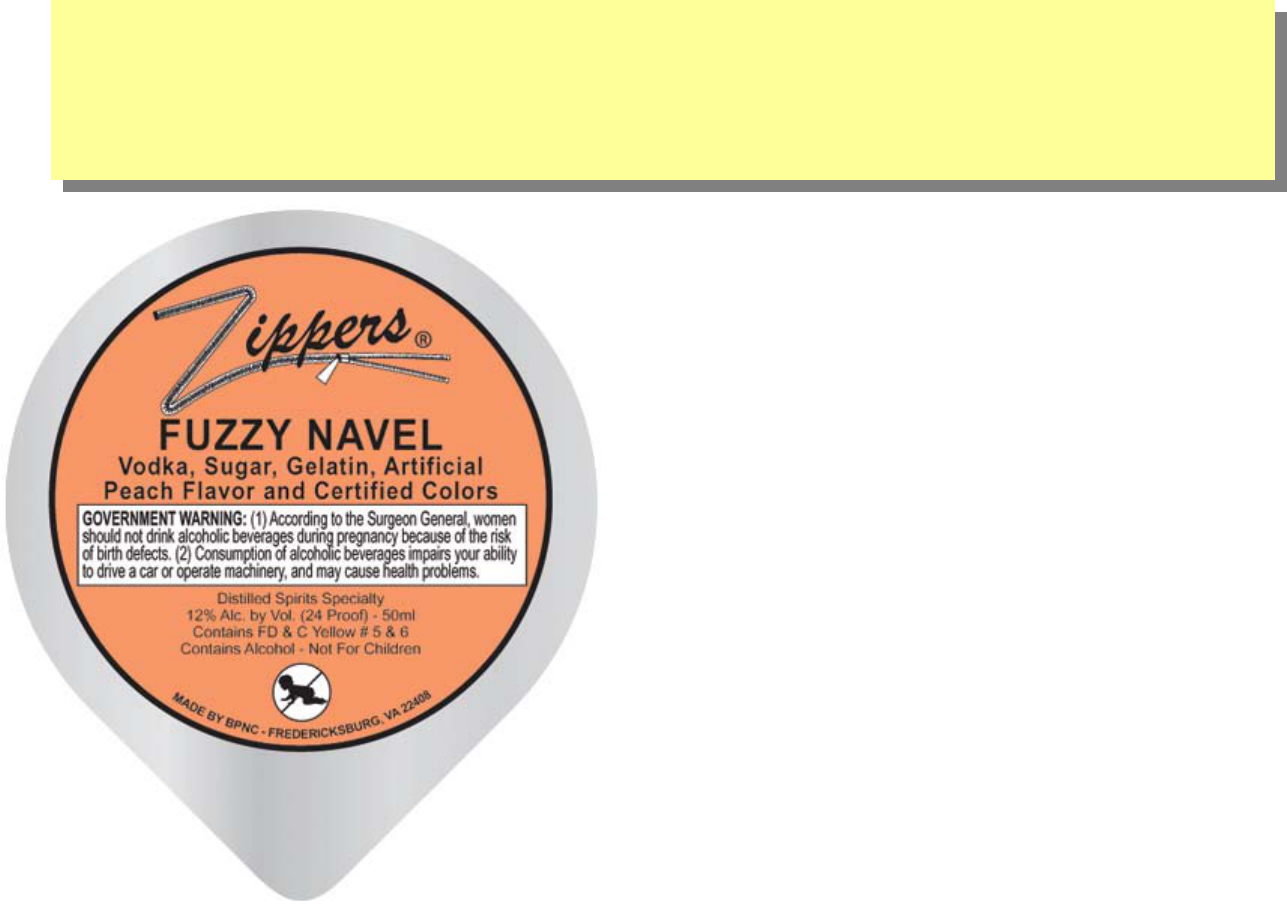
Standard of Fill:
Aggregate Packaging Concerns
Standard of Fill:
Standard of Fill:
Aggregate Packaging Concerns
Aggregate Packaging Concerns
In the interim, safeguards
encouraged by TTB include:
labeling the individual
containers as “not for
individual sale” and “not for
children,” sealing the outer
container with shrink wrap or
other secure methods, and
encouraging bottlers to bottle
the individual units of the
package in authorized
standards of fill.

Flavored Malt Beverages -
Proposed Rule
Flavored Malt Beverages
Flavored Malt Beverages
-
-
Proposed Rule
Proposed Rule
On March 24, 2003, TTB issued a notice of proposed
rulemaking, soliciting comments on a number of
regulatory changes concerning flavored malt
beverages. Among other things, we sought
comments on whether certain products should be
classified as malt beverages or distilled spirits.
We recognized that the proposed changes would
affect the rate of tax applicable to such products, the
premises on which they may be produced, and the
way that the products are labeled, advertised, and
marketed.

TTB recognized the concerns of many commenters
that so-called “alcopop” products such as FMBs were
particularly appealing to underage consumers.
We noted that the Federal Trade Commission issued
a report in September of 2003, which found no
evidence of targeting underage consumers in the
marketing of FMBs.
FMBs and Underage Drinkers
FMBs
FMBs
and Underage Drinkers
and Underage Drinkers

The FTC recognized that ad content that
appeals to new legal drinkers, as well as the
sweet taste of FMBs, may be attractive to
underage drinkers.
The FTC urged the industry to exercise
significant caution when introducing new
alcohol beverage products, to ensure that
they are not marketed to an underage
audience.
FTC Concerns
FTC Concerns
FTC Concerns

TTB recognized the concern of many commenters
that FMBs may be particularly attractive to young
drinkers, and noted the significant public health issue
posed by underage consumption of alcohol
beverages.
Nonetheless, TTB concluded that the concerns of
many of these commenters were beyond the scope
of our authority. TTB’s regulation was limited to
implementing its statutory authority to ensure that
such products are properly classified, and are labeled
and advertised in a manner that does not mislead
consumers.
TTB Final Rule
TTB Final Rule
TTB Final Rule

Q
Q
UESTIONS?
UESTIONS?
William H. Foster
Assistant Administrator, HQ Operations
Alcohol and Tobacco Tax and Trade Bureau
1310 G St., NW
Washington, DC 20220
Office: (202) 927- 8210
